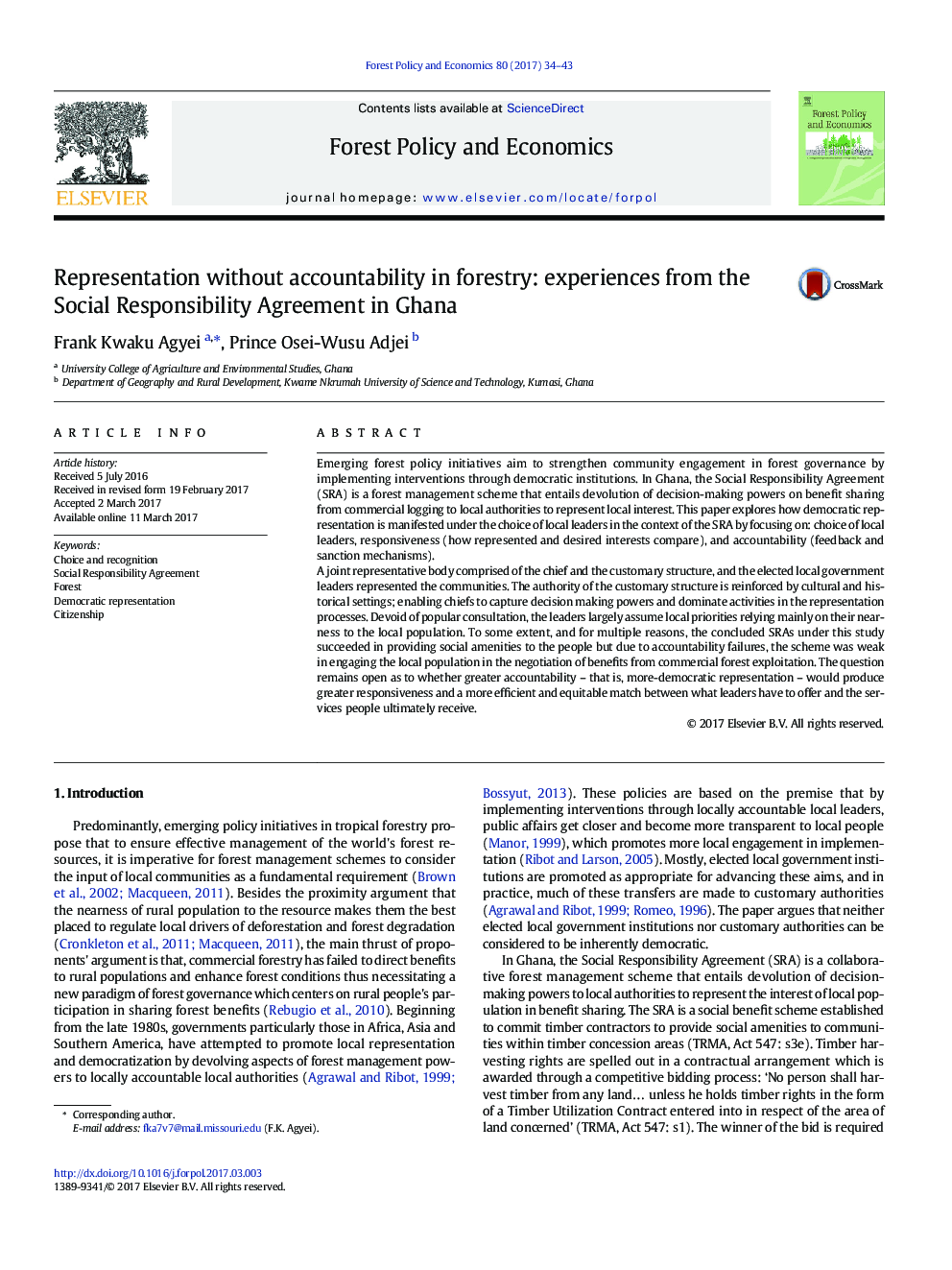| کد مقاله | کد نشریه | سال انتشار | مقاله انگلیسی | نسخه تمام متن |
|---|---|---|---|---|
| 6459730 | 1421659 | 2017 | 10 صفحه PDF | دانلود رایگان |
- Leaders do not consult but assume local priorities prior to decision making.
- Devoid of popular consultation, concluded agreements reflected local priorities.
- Few people knew the Agreement but no efforts were made to demand accountability.
- The question remains as to whether greater accountability would produce greater responsiveness.
Emerging forest policy initiatives aim to strengthen community engagement in forest governance by implementing interventions through democratic institutions. In Ghana, the Social Responsibility Agreement (SRA) is a forest management scheme that entails devolution of decision-making powers on benefit sharing from commercial logging to local authorities to represent local interest. This paper explores how democratic representation is manifested under the choice of local leaders in the context of the SRA by focusing on: choice of local leaders, responsiveness (how represented and desired interests compare), and accountability (feedback and sanction mechanisms).A joint representative body comprised of the chief and the customary structure, and the elected local government leaders represented the communities. The authority of the customary structure is reinforced by cultural and historical settings; enabling chiefs to capture decision making powers and dominate activities in the representation processes. Devoid of popular consultation, the leaders largely assume local priorities relying mainly on their nearness to the local population. To some extent, and for multiple reasons, the concluded SRAs under this study succeeded in providing social amenities to the people but due to accountability failures, the scheme was weak in engaging the local population in the negotiation of benefits from commercial forest exploitation. The question remains open as to whether greater accountability - that is, more-democratic representation - would produce greater responsiveness and a more efficient and equitable match between what leaders have to offer and the services people ultimately receive.
Journal: Forest Policy and Economics - Volume 80, July 2017, Pages 34-43
